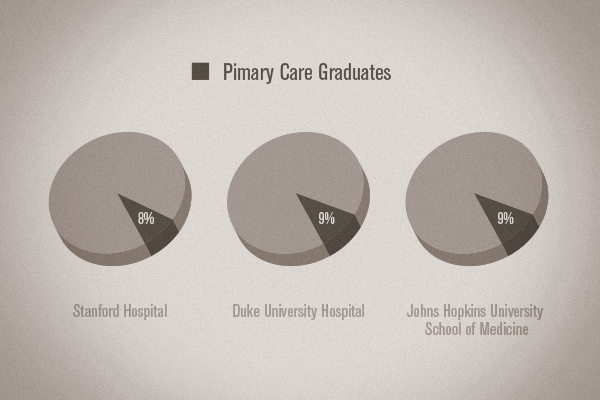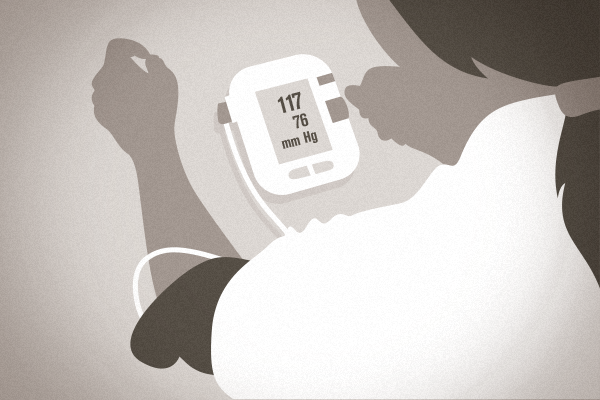Boston’s Partners HealthCare last month launched a system that integrates at-home data with an in-house EMR. It’s not too different from what we’re doing with Atlas.md, which will sync with apps like FitBit, and relay measurements and readings directly to a direct care physician. Partner’s new system, though, allows patients to use multiple devices at home — glucometers, blood pressure cuffs, bathroom scales, and pulse oximeters (which measure blood oxygen levels) — to take regular measurements. They can upload the results from the medical devices and send them to their doctors, often wirelessly.
Category Archives: Announcements
Inaugural Direct Primary Care (DPC) Conference To Be Held In St. Louis: October 11-12, 2013
The Direct Primary Care Journal (DPCJ) released a statement confirming the first Direct Primary Care Conference hosted by the Family Medicine Education Consortium (FMEC). On October 11th – 12th, 2013, the FMEC is hosting an inaugural gathering of physicians, investors, policymakers and anyone else involved in this game-changing healthcare model. The inaugural event will take place in St. Louis, MO at the St. Louis Airport Marriott and Meeting Center. Physicians, purchasers, payers, researchers, investors, suppliers, policymakers, the media and interested parties are invited to attend.

Our Best Med Schools Are Producing The Fewest Primary Care Physicians
The list is out. Medical Economics compiled the 20 schools producing the fewest primary care physicians. Yes, this is a worst-of list. And yes, we’re still optimists. But we’re also realistic. These “poor-producing” schools are actually some of the best in the nation. Johns Hopkins University School of Medicine, Duke University, Yale-New Haven Hospital stand out on an uber-prestigious list. It looks like our finest institutions are preparing our brightest young minds to do anything but good old-fashioned family medicine. And that is a bit disappointing.
Check out the complete list of schools on Medical Economics website.

If People Were EMRs, We’d Be Doing A Whole Lot Better
The Journal of General Internal Medicine has confirmed what we’ve been saying all along: Doctors spend more time with computers than they do with patients. Their new study lays out the cold hard fact that face time is down, and hours spent working on computers handily beat out patients. Here are the highlights from the research. Try not to twist your neck while you’re shaking your head.
Congressman Mike Rogers Shreds Federal Healthcare Reform
In case you missed it, you can watch Mike Rogers impassioned response to the soon-to-be enacted ACA. He makes a powerful stand for American innovation in the private sector. Although he doesn’t explicitly mention direct care, we’re glad to draft behind this convincing powerhouse.
Rogers is the U.S. Representative for Michigan’s 8th congressional district, serving since 2001.

UPDATE: Are Doctors Responsible For Cutting Healthcare Costs?
We had a quick update on the survey asking doctors to gauge their responsibility in keeping healthcare costs down. Fox News followed up with a write-up regarding the study. They reference additional research relating to the findings and one quote caught our attention:
“Dr. Ezekiel Emanuel, a professor of bioethics and health policy at the University of Pennsylvania, said the survey’s findings are somewhat discouraging, and suggested that doctors must lead health care transformations.” He went on to argue in an editorial accompanying the study that physicians do not have the ‘all-hands-on-deck’ mentality that true reform would demand.
We think his statement could use a modifier. Most, even many, physicians might not have the all-hands on deck mentality. At least not yet. But direct primary care physicians do. Seriously, when Jeannie is sick we run our practice with just three doctors. That’s because we’re not above answering a phone, scheduling an appointment, or cleaning out the fridge if that’s what needs to happen.

Looming Health Care Changes Worry Businesses
So we’ve been promoting direct care for years now, touting the freedom it gives us, the time it allows us to spend with patients. One thing we don’t always associate with being a doctor, though, is the entrepreneurship necessary to get a small business off the ground. Joining the direct care movement is a powerful decision for two reasons: one, you’re making the choice to serve patients, not bureaucracy. Two, you’re running your own business.
That said, if you’re running a small business, or plan to run one, you’ve likely conversed about Obamacare hampering the economy. Here’s a recent article from Business News Daily updating how businesses are gearing up for ACA enactment later this year. There wasn’t much by way of good news. Business News Daily reports, “Among small businesses surveyed that will be affected by the employer mandate, one-half said they will either cut hours to reduce full-time employees or replace full-time employees with part-timers to avoid the mandate. Additionally, 24 percent plan to reduce hiring to stay under 50 employees.”
UPDATE: Good Communication Is Good For Your Patients (And Your Bottomline)
We came across an article from The Wall street Journal addressing patient communication. It’s worth reminding our doctors: evidence has mounted that good communication helps patients stick to recommended treatments and manage chronic diseases. It also improves outcomes in the management of diabetes, hypertension and cancer. As primary care physicians in DPC, we’re not always dealing with conditions this serious. However, we’re still prescribing medications. Our ability to be clearly dictate when to take them, and why we’re recommending our patient take them MATTERS.
In a separate but related issue, we mentioned last week that poor communication is more likely to get you sued than making mistakes. Evidently patients don’t want to sue a doctor they like. Although they are willing to file lawsuits against the unfriendly, un-empathetic doctor who harried them through their visit. The WSJ points this out as well, saying “lack of communication, after all, isn’t just frustrating for patients. It can hurt the quality of care, drive up costs and increase the risk of lawsuits. And under new Medicare rules, providers won’t get as much money if they rack up poor patient-satisfaction scores or too many preventable readmissions.” Thankfully, in our line of work this last sentence need not apply. We can’t begin to express how glad we are to NOT have to fill out ICD-10 codes or have our patients pencil in score sheets regarding our service.
New App From Pay-Pal Founder Wants To Use Big Data To Improve Healthcare
A ZD Net post reports that during a fireside chat with AllThingsD’s Kara Swisher at the 2013 Data Driven Conference on Wednesday, PayPal co-founder Max Levchin described the inspiration behind his latest startup, Glow. Glow is a mobile app launched earlier this year that’s trying to improve fertility using “big data.” Right now, the app quite literally wants to help women get pregnant, which in such layman’s terms sounds like a parody. But Levchin is serious that this type of app can lead to better doctor-patient decision making, and ultimately trim wasted spending. He’s stated that the company’s goal is to expand into other niches in the healthcare field in order to accomplish this.

